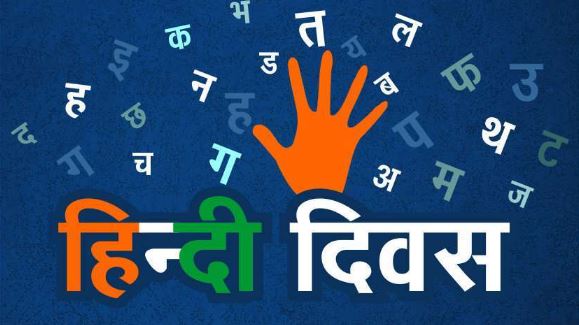New Delhi: The Hindi language is one of the most widely spoken languages in the world. India celebrates the Hindi Diwas annually on September 14 to mark the adoption of the Hindi language as the country’s official language.
Also referred to as National language or ‘Raj Bhasha’ by Union Home Minister, Amit Shah, the Hindi language enjoys a special place in the country. The language is seen as a uniting factor among the citizens, depicting unity and shared traditions. The language is also a symbol of national identity.
However, there are certain words that have been adopted and/or integrated by the Oxford English Dictionary over a period of time. The English language has been integrating several words from the Indian language almost every year. Let us take a look at some of these words:
- Achcha
One of the most commonly used term in every Indian household, Achcha was officially taken by the Oxford English Dictionary in 2017 and also identifies as an English word. The word refers to an act of agreeing with the speaker, and may or may not be sarcastic in nature, depending on the context. The OED describes the term as ‘used to show that the speaker agrees with, accepts, understands, etc. something.’
- Jungle
Most commonly used by the Native and non-native Hindi speakers, Jungle was one of the earliest words to be added to the Oxford English Dictionary (OED). The word refers to a region that is replete with a dense network of trees and grass and is a natural habitat for several animal kingdoms to flourish. In other words, Jungle is a synonym of the word Forest.
- Juggernaut
Taking from the famous Jaggannath Yatra of Lord Krishna, Balram, and Subadhra that is held in the Puri district of Odisha, the word Juggernaut refers to a large, heavy vehicle, especially a huge lorry that has to be pushed or forced.
- Jugaad
A typical Indian trait, the term Jugaad was incorporated into the OED in the year 2017. The term refers to a flexible approach to solving problems by utilising limited resources in innovative ways.
- Didi
Another common Hindi term for native speakers, Didi refers to an older female sibling or cousin across the country. The term has different Indian variations, like Di, Didu, Jiji, Jijja, that differ geographically but the meaning remains unchanged.
- Dadagiri
An Indian slang used to depict brute force, the word Dadagiri was adopted by the OED in 2017. The dictionary defines Dadagiri as ‘the act of using strength and power to frighten or hurt weaker people.’ The word is synonymous with the English act of Bullying.
- Chamcha
Another Indian jargon used to tease a wannabe, the OED describes Chamcha as ‘a person who tries too hard to please somebody, especially somebody who is important.’
- Chakka Jam
A common Indian phenomenon, the word Chakka Jam was added in the OED in 2017 and describes ‘a protest in which people block a road or cause a traffic jam.’
- Time pass
Often confused as a native English word, the term Time pass is a typical Indian jargon, often used by teenagers and young adults. The word was ultimately added to the OED in 2017. The word refers to ‘the action of spending time doing something, especially something that has no aim or is not very useful.’
- Gulab Jamun
The popular dessert relished across the country also managed to find a place in the Oxford English Dictionary. The dessert includes sweet balls prepared in plain flour dipped in sugar syrup and served hot.
(Avya Mathur)

